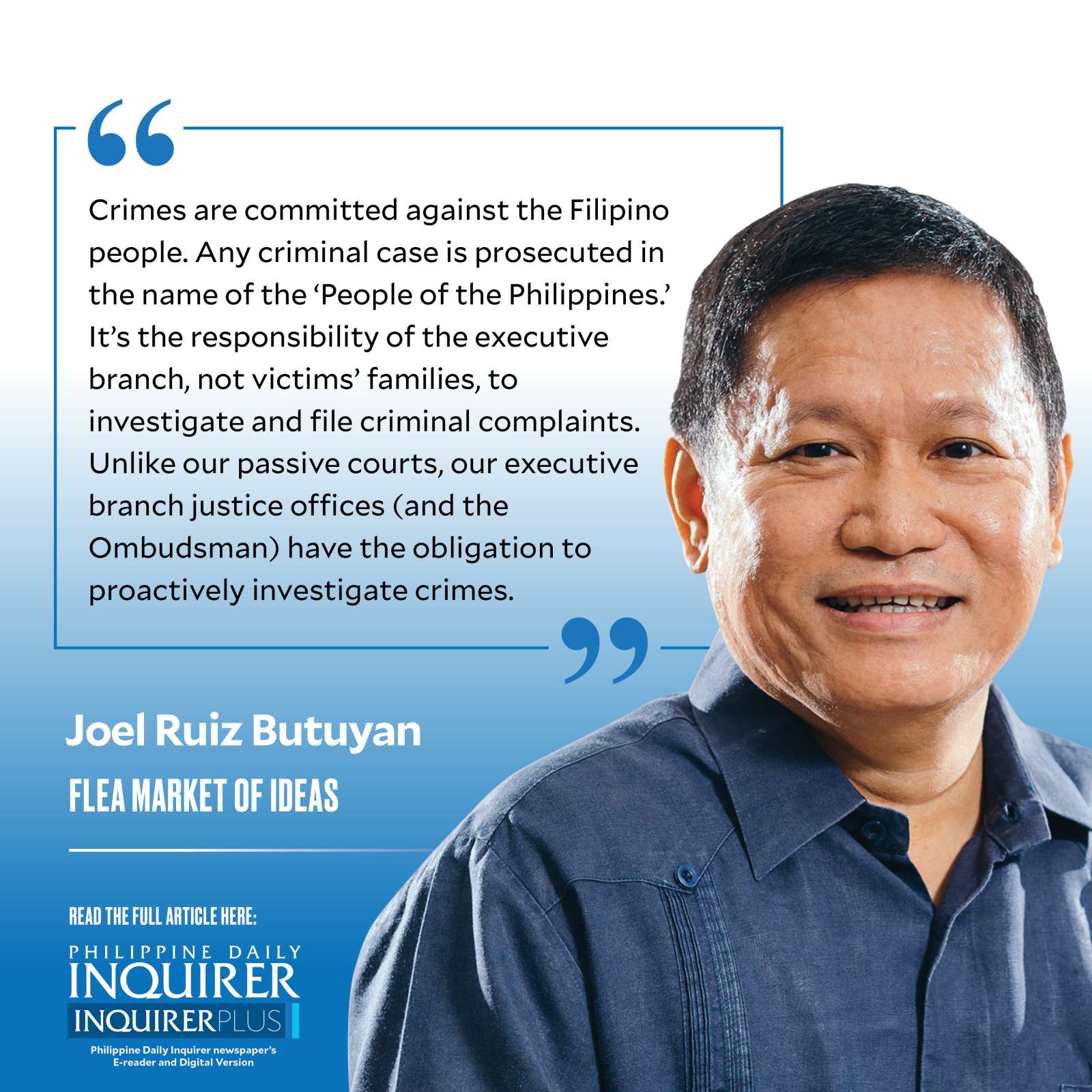Is Marcos misled by his lawyers on the ICC issue?
President Marcos keeps on repeating an erroneous argument about the jurisdiction of the International Criminal Court (ICC) to investigate potential crimes against humanity committed in our country during the previous administration.
During his state visit in Australia last February, he declared that the ICC has no jurisdiction over the Philippines because we have a functioning judiciary. In his more recent visit in Germany this March, he repeated his assertion that we “have a working judicial system” so the ICC has no jurisdiction. He has been making the same argument, in fact, as early as 2022 when he assumed the presidency. The President’s assertion is wrong on multiple fronts.
Article continues after this advertisementFirst, what triggers the ICC’s exercise of complementary jurisdiction is the inability or unwillingness of our entire state (Republic of the Philippines) to prosecute crimes against humanity (CAH). This means not only our courts, but our entire justice system. And what are the other offices of our justice system, aside from our courts? These are the Philippine National Police, National Bureau of Investigation (NBI), National Prosecution Service (NPS), Department of Justice (DOJ), Office of the Ombudsman, among others.
Our courts are passive actors in the dispensation of justice. They have to wait for cases to be filed, before they can exercise jurisdiction. We may have functioning courts, but if the PNP, NBI, NPS, DOJ, and Ombudsman fail or refuse to file CAH cases in our courts, there will still be inability or unwillingness of our state that will trigger the ICC to step in. And since virtually all of these public offices are part of the executive branch (except for the Ombudsman), it is the failure and refusal of the executive branch—now headed by Mr. Marcos himself—that has triggered the ICC to exercise jurisdiction. The failure and refusal started during President Rodrigo Duterte’s term and it has been continued by Mr. Marcos himself. It’s the executive branch that has held hostage and prevented any CAH investigation in our country.
Second, the PNP, NBI, NPS, DOJ, and Ombudsman cannot wash their hands and say that they have nothing to investigate because victims’ families have not filed complaints in their offices. This is a lame and shameless excuse. Crimes are committed against the Filipino people. Any criminal case is prosecuted in the name of the “People of the Philippines.” It’s the responsibility of the executive branch, not victims’ families, to investigate and file criminal complaints. Unlike our passive courts, our executive branch justice offices (and the Ombudsman) have the obligation to proactively investigate crimes.
Article continues after this advertisementBesides, what evidence are the police and prosecutors waiting for, when all the evidence are gathering dust in their offices? More than 6,000 deaths in the so-called drug war were admittedly committed by police operatives. All the police officers involved, and all the investigation files (or more importantly, the lack or inadequacy of investigation) are at their disposal. They need nothing more from the victims’ families who can only testify on civil damages.
Moreover, a CAH investigation requires piecing together evidence of thousands of deaths scattered all over the country. This is beyond the capacity of any private victim or even groups of them. So many victims’ families cannot even access the police records of the deaths of their loved ones, and the government expects them to have access to thousands of death records? And how can we demand courage from ordinary victims’ families when a recent criminal complaint filed by no less than a lawmaker (ACT party list Rep. France Castro) for a death threat publicly made against her by former president Duterte, was summarily dismissed by prosecutors? Only the government has the capacity, and access to evidence, to investigate and prosecute any CAH.
Third, the inability or unwillingness of a state refers only to the investigation and prosecution of CAH. Our justice system offices may be functioning effectively with respect to all other crimes. They may be filing criminal cases for corruption and abuse of powers against top public officials. They may even be rendering decisions annulling actions and issuances of the President and Congress. However, if they selectively turn a blind eye to CAH, there will still be inability or unwillingness that will justify the ICC’s exercise of jurisdiction.
There are many top caliber lawyers presumably advising the president (who is not a lawyer, unlike his father) on the ICC issue. There are his presidential legal counsel, the DOJ secretary, the solicitor general, the prosecutor general, and his executive secretary. What advice are they giving the president?
One wonders if the President is being misled by his lawyers, or if the President himself is intentionally misleading his own people.
—————-
Comments to fleamarketofideas@gmail.com

















